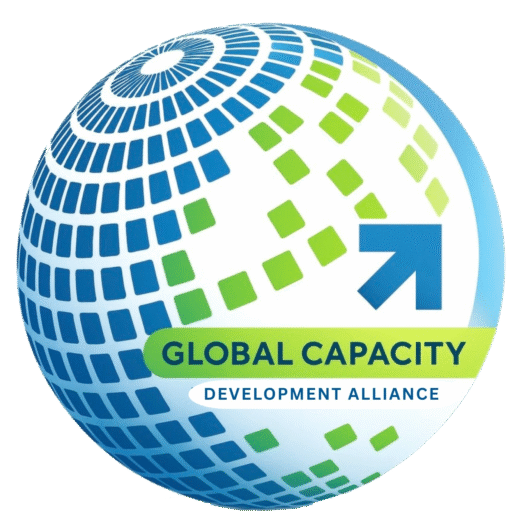Introduction: A Region on the Cusp of Transformation Africa is experiencing a pivotal moment in its governance and development journey. As governments and civil society organizations (CSOs) navigate shrinking aid flows, rising inequality, and increasing demand for transparency, one factor emerges as a game-changer: robust Public Finance Management (PFM). Effective PFM systems are not just about balancing budgets—they are about unlocking resources for education, healthcare, infrastructure, and sustainable livelihoods. At the Global Capacity Development Alliance (GCDA) and the African Capacity Development Center (ACDC), we believe that capacity building in PFM, institutional strengthening, and human capital development is the cornerstone of inclusive growth. Our highly experienced executives, passionate about reducing inequality and promoting sustainable development, are working hand-in-hand with governments and CSOs to create operational systems, standards, and policies that deliver long-term impact. Africa’s Social Economy: A Rising Force Across the continent, the concept of the social economy is gaining traction. This model prioritizes local reinvestment, community-driven enterprises, and sustainable finance. With aid flows becoming more uncertain, governments are looking to the social economy to generate jobs, strengthen resilience, and ensure development benefits stay within communities. For GCDA/ACDC, this trend aligns perfectly with our mission. By supporting governments in building fiscal capacity and accountability frameworks, we enable them to channel resources effectively into social enterprises, cooperatives, and grassroots initiatives. This shift strengthens not only the economy but also the trust between citizens and institutions. Digital Transformation in PFM: The New Frontier Another defining trend is the digitalization of public finance. The adoption of Integrated Financial Management Information Systems (IFMIS) is spreading rapidly, with over 75% of African countries having launched digital platforms to manage budgets, track spending, and enhance accountability. However, the challenge is not just in adopting technology, but in ensuring these systems are user-friendly, accessible, and backed by skilled professionals. At GCDA/ACDC, we support governments by: As the UNDP emphasized in its 2025 High-Level Regional Dialogue, digital innovation in PFM is central to building trust, mobilizing domestic resources, and delivering better public services. Civil Society as Equal Partners in PFM Traditionally, public finance was viewed as the domain of governments alone. But this mindset is changing. CSOs today are playing a transformative role in monitoring budgets, lobbying for transparency, and ensuring citizen participation. One of the most powerful tools here is participatory budgeting—a system where citizens directly contribute to deciding how public funds are spent. Evidence from countries like Brazil shows that municipalities adopting participatory budgeting saw 39% higher tax collection rates, driven by increased citizen trust and cooperation. At GCDA/ACDC, we champion this model by training CSOs in budget analysis, policy advocacy, and financial oversight. By equipping them with technical knowledge, we ensure they move from being mere observers to becoming active co-creators of financial governance. Case Study: Lessons from South Sudan A clear example of capacity building in action comes from South Sudan, where UNDP and the African Development Bank (AfDB) recently supported nationwide PFM workshops. Hundreds of officials were trained in tax harmonization, budget transparency, and local governance. The results are telling: government ministries are now more confident in managing revenue flows, while citizens are gaining better visibility into how funds are allocated. This mirrors GCDA/ACDC’s approach. By embedding technical training within real-world contexts, we ensure governments can apply knowledge immediately to strengthen equity, accountability, and service delivery. Best Practices in Capacity Building for PFM Over decades of experience, both research and practice have identified what works—and what doesn’t—in strengthening PFM systems. Some best practices we emphasize include: GCDA/ACDC’s Unique Value Proposition So, what makes GCDA/ACDC different in this crowded landscape of capacity development organizations? Whether it’s improving management reporting systems, enhancing information flow and organizational planning, or developing policies aligned with global SDGs, GCDA/ACDC acts as a trusted partner in the journey toward better governance. Looking Ahead: Partnerships for Impact The road ahead is both challenging and promising. Africa’s fiscal landscape is evolving rapidly, and the demand for accountability, inclusivity, and innovation is higher than ever. GCDA/ACDC stands ready to partner with governments, CSOs, and international institutions to: As the social economy expands, digital tools grow more sophisticated, and citizens demand a greater voice in governance, one truth stands out: capacity building is not a luxury—it is the foundation of sustainable transformation. Conclusion: Why This Matters Public finance may sound technical, but its impact is deeply human. It determines whether a child gets access to quality education, whether hospitals are equipped to save lives, and whether communities thrive or struggle. At GCDA/ACDC, we are committed to ensuring that every dollar, every policy, and every system works in service of equity, transparency, and sustainable progress. Together with our partners across Africa, we believe that transforming PFM is not just about managing money—it’s about reshaping futures.

